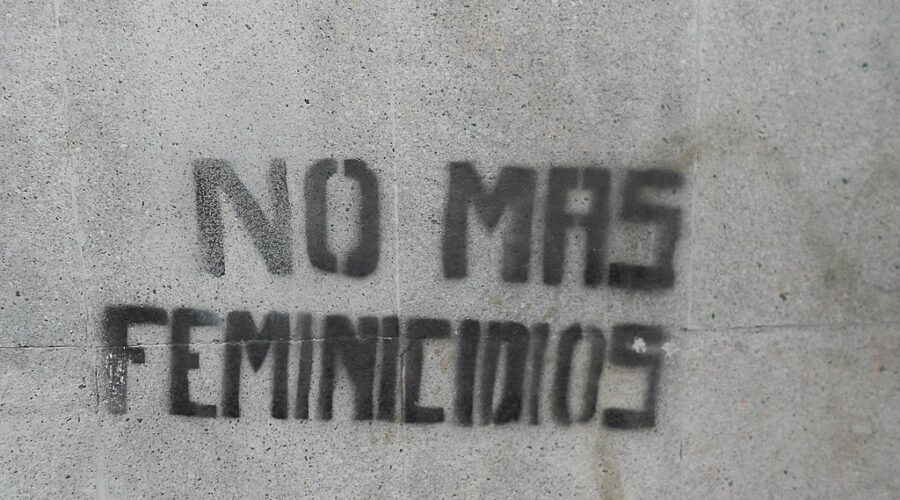Hundreds of women have been killed in Colombia as victims of femicides and this crime does not seem like it is going to stop. Even though important laws related to gender equality and empowerment (such as Ley Rosa Elvira Cely and law 1719, 2014) have been promoted in the country to guarantee access to justice of sexual violence, gender-based crimes are still rising.
Unfortunately, Colombia is a patriarchal society where women are intentionally killed because of stereotypes, gender roles, discrimination, and power inequality of men and women. According to the report published by Observatorio Colombiano de Feminicidios in January 2023, in most cases, these gender-based hate crimes have been committed by drug and narcotraffic gangs, hitmen, and by current or former partners.
The spiral of violence that surrounds Colombia has many faces, which have always affected women of all ages and races, with different roles in society. It is also vital to mention indigenous, Afro Colombian, and Venezuelan migrants who have been killed in brutal ways including use of force, beatings, mutilation, firearms, stabbing or a combination of these types of violence, where their dead bodies are exposed publicly.
#NuestraVozNuestroPoder #SOSMujeresColombia #NoEsHoraDeCallar #nomásvocessilenciosas pic.twitter.com/jJ5qhRFwDK
— * (@OBSocDGBMsWgo0m) April 13, 2023
Femicides occur for distinct reasons. For instance, macho culture reigns in Colombia so men do not allow themselves to understand why their female partners want to break up their relationship. After a history of intimidation, physical and sexual abuse, as a question of honor, men believe they have the right to women’s bodies and end up taking female lives.
Armed conflict also intensifies the vulnerability of women. Based on the main findings of Colombia’s Truth Commission (Comisión de la Verdad), the indiscriminate use of violence against women’s lives and bodies has been used as a strategy to clear and rule over territories then gain control over communities. Undoubtedly, men who belong to guerrillas and paramilitary groups consider themselves as members who exercise dominating roles not only because of their power, but also because the use of weapons that scare and subordinate everyone.
In the same way, armed groups dedicated to drug trafficking who inhabit areas of cocaine production and export have committed acts of violence against all the population, especially women, who have been selectively killed due to being accused of having any type of relationship with members of the security forces; they are declared enemies and are forced to flee or are assassinated in the worst conditions.
Bearing in mind this devastating situation for Colombian women, various measures have been set up to address violence against women, but nothing is working – almost forty assassinations are taking place each month. Today, there is a respectable number of laws and initiatives related to prevention and attention in Bogota, the capital of Colombia, and in other cities and towns, however, mistreatment and hate crimes continue to occur.
Additionally, there is good research about gender-based violence and institutions such as Casas Refugio (shelter houses) have been founded to protect, advise, and accompany women at risk of femicide, but the lack of communication between institutions is evident. At the same time, survivors of assault do not know their rights or, in the worst scenarios, do not report the abuse because they are subject to death threat by their partners. Alternatively, they do not report because they simply do not believe in Colombian justice due to the high proportion of crimes that remain hidden under the cloak of impunity.
Hoy tendré la oportunidad de hacer una intervención en el Congreso de la República, en Plenaria del Senado, por la solicitud por la Declaratoria de emergencia por violencias basadas en género. 💜#SOSMujeresColombia sigan la transmisión 👇 pic.twitter.com/JitkJy2Lu7
— Ana María Vélez (@Anitavelez9) March 29, 2023
Recently, a national emergency has been declared thanks to the initiative of #SOSMujeresColombia campaign, which is focused on preventing femicides and violence against women. It calls for the elite police group to attend to women at risk, for judicial units to protect victims, and a guarantee of legal proceedings against women’s perpetuators.
We have to stop seeing femicides as a crime that only exists in the news, because women live in a society where they are not protected and are targets of constant abuse. Thus, in Colombia it is time to search for ways for institutions to work together to improve women’s safety. In addition, laws and policies must be enforced to respect their lives, but the Colombian government and its judicial branch do really need to work hard on reforming justice and rooting out impunity, otherwise, Colombia will continue to immerse itself in this spiral of violence.
Image: Denis Bocquet

